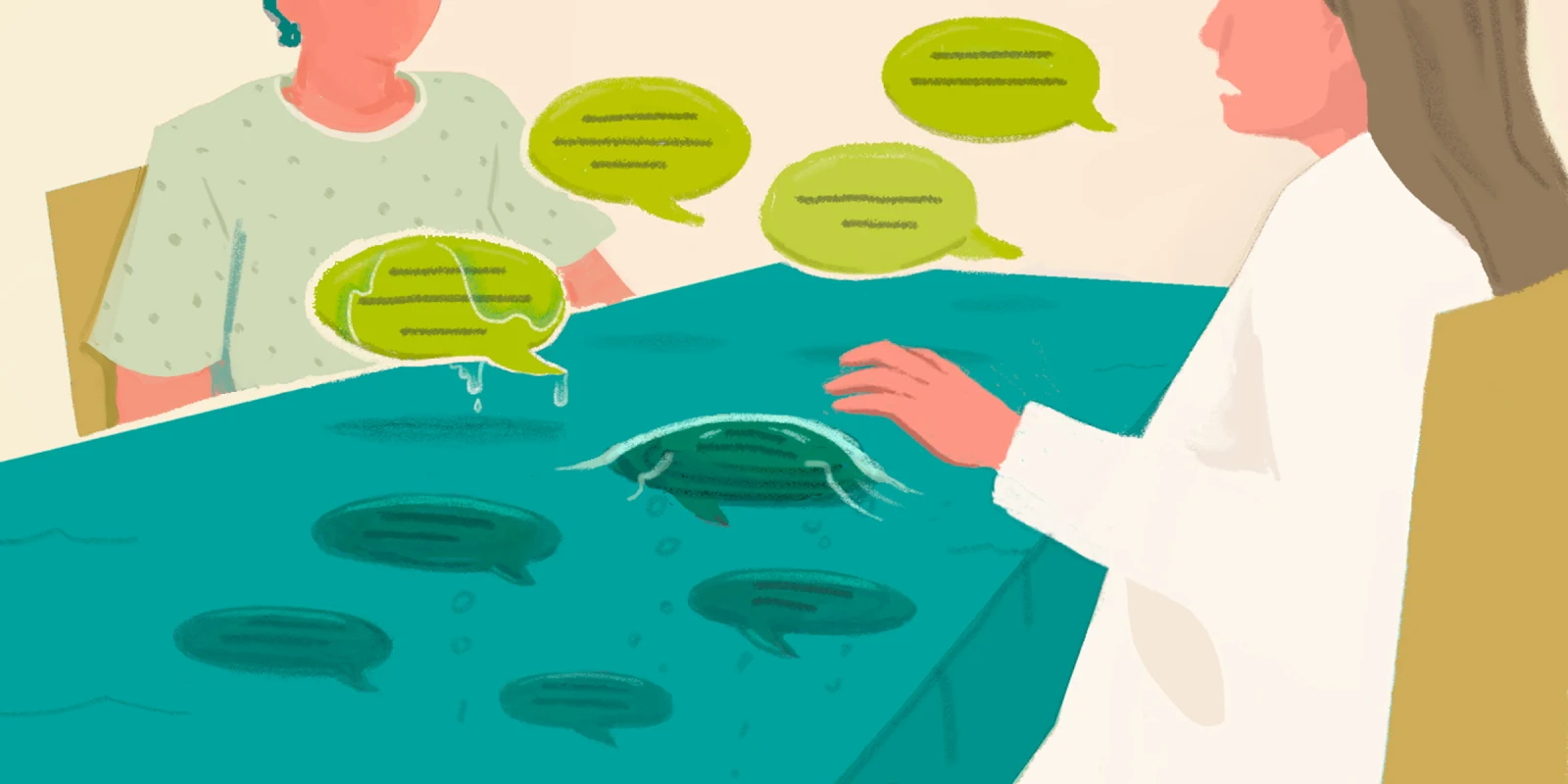In the ED, I feel like I am always apologizing.
My first apology is often when I arrive to meet my patient. With wait times extending up to hours on busy days, there are times when my patients are understandably frustrated that it has taken so long to be seen by a doctor. I introduce myself and apologize for the wait. My patient tells me they tried to get an appointment with their outpatient team, but there weren't any slots available until next week, so they came to the ED instead. I say I'm sorry again — I know it's frustrating when clinics are so busy too.
Later, when it's time to admit my patient to the hospital, I say I'm sorry that it'll likely take hours before their inpatient bed is ready. With sky-high rates of ED boarding, they may have to wait overnight in the ED before being moved upstairs.
“I'm sorry,” I try to explain, “the hospital is so full right now, but we will do everything we can to move things along.” My shift is punctuated by these apologies, and as I deliver each subsequent one, I occasionally start to feel a sense of defeat as I try to help my patients feel seen and heard in their frustrations.
I'm conflicted about these apologies. At the end of a long shift, the weight of each apology can add up, and I feel the heaviness of being on the front line of a health care system that is difficult to navigate and replete with barriers to accessing each step of care. While apologies are undoubtedly valuable in moments of frustration, and at times it's essential to acknowledge patients' understandable chagrin, I often find myself searching for a more positive framing of the difficult realities my patients face.
Sometimes, I try turning every potential apology into an expression of gratitude instead, and I say "thank you" instead of "I'm sorry." Thank you for your patience in the waiting room. Thank you for sharing that important part of your medical history with me. Thank you for trusting us with your care.
Often, I'm surprised to find that these expressions of appreciation for my patients' partnership with the health care team and their active role in their care resonate, and even help alleviate some of the frustration bubbling over. Despite this, I am not sure apologies and thank yous are truly interchangeable. Like my patients, when I feel I have been wronged, I often want to be apologized to — for someone to recognize and take responsibility for what has transpired.
And "I'm sorry," I've learned, means more than just taking accountability for a problem; it's our collective shorthand for expressing empathy and understanding. While recounting their symptoms, the emotional impact of what my patients have endured can seep into their stories. Recently, searching for what to say to my patient with a newly diagnosed cancer, I found myself saying "I'm so sorry you are going through this," then pausing to wonder whether this was the right thing to say. It wasn't my fault, was it?
"You know," my patient's wife said, turning to her husband, "this is the first doctor to tell us she's sorry." My patient nodded, and my hesitation dissipated.
Each shift in the ED can feel like a dance between these dual approaches, and every day, I am grateful for the firsthand insight I gain into my patients' lived experiences managing their health. From them, I learn of the real consequences of issues like barriers to accessing primary care and affordable medications. On a more personal note, I learn how the lists of diagnoses I read in their medical charts impact their daily lives. I've learned about how painful it is to give yourself daily injections, how frightening it is to wait for the results of a scan, and how confusing it is to try to decipher medical terminology for the first time.
I don't think there is a one-size-fits-all phrase to offer as a universal panacea, and these days, I find myself increasingly tolerant of my impulse to apologize for misfortunes that befall my patients, especially in cases where there is no individual villain to blame. I'm thankful for all my patients share with me, and simultaneously, I'm sorry that their lessons are often learned through medical experiences riddled with fear, anxiety, and pain. Both things can be true.
Dr. Anjali Misra is an EM resident in Boston, MA. She is passionate about health equity, prehospital care, and public health. She is a 2024-2025 Doximity Op-Med Fellow.
Illustration by Diana Connolly







